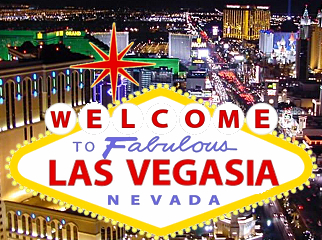 Nevada casino companies are celebrating the news that gambling revenue rose 15.1% to $1.073b in February, the highest monthly total since December 2007. The numbers were boosted by a spectacular month on the Las Vegas Strip, where casino gambling revenue rose 31.1% to a record $696.1m. But strip away the Strip’s record performance and the mood is a lot less celebratory. Gambling revenue fell in other sections of Clark County (in which Las Vegas resides), with downtown Las Vegas casinos off 7.8% and North Las Vegas down 14.3%. In fact, the only non-Strip regions of Nevada to post revenue increases in February were South Lake Tahoe, which rose 7.8% to $16.2m and North Lake Tahoe, up 35.3% to $2.19m.
Nevada casino companies are celebrating the news that gambling revenue rose 15.1% to $1.073b in February, the highest monthly total since December 2007. The numbers were boosted by a spectacular month on the Las Vegas Strip, where casino gambling revenue rose 31.1% to a record $696.1m. But strip away the Strip’s record performance and the mood is a lot less celebratory. Gambling revenue fell in other sections of Clark County (in which Las Vegas resides), with downtown Las Vegas casinos off 7.8% and North Las Vegas down 14.3%. In fact, the only non-Strip regions of Nevada to post revenue increases in February were South Lake Tahoe, which rose 7.8% to $16.2m and North Lake Tahoe, up 35.3% to $2.19m.
Statewide slot machine win fell 5.2% to $541m and slots handle was down a similar percentage. While roulette win increased 22% to $37.7m and sportsbook revenue increased 24% to $14.3m, the other casino games were either up single digits or down double digits. In case you hadn’t already guessed, Asian gambling whales hitting the Strip for the 10-day Lunar New Year festivities were the engines that drove Nevada’s numbers upward.
February’s baccarat win was up 131.35% to $263.9m while mini-baccarat rose 108.6% to $11.7m. Baccarat handle doubled to $1.593b and hold rose to 16.56% from 14.34% in February 2012. Small wonder that Nevada increased its number of baccarat tables to 329 from 273 at the same point last year. It seems Vegas’ fortunes are almost wholly dependent on how many Asian whales beach themselves on Nevada’s shores in any given month, and how poorly their luck holds at the tables. For proof, look no further than the deep dip revenues took in January because the previous Lunar New Year celebrations took place in January 2012.
Yet as with February’s revenue figures, the announcement in March by Malaysian casino operator Genting that it would build a new casino on the abandoned Echelon site is being taken as a sign that Vegas is back, baby. In fact, Genting’s decision was likely based more on ensuring a diverse portfolio of overseas properties at which to host traveling Asian baccarat whales. As Heritage Foundation economist Derek Scissors told Reuters last month, smart investors are “setting up places for Chinese people to stay and things for them to buy.”
We’ve seen this phenomenon before, in which Asian investment in western regions is viewed as acknowledgement of Western superiority, like the flurry of Asian online gambling companies inking jersey sponsorships with European football clubs. But these investments weren’t made to boost these companies’ profiles in Europe’s saturated and over-regulated gambling markets, but to boost visibility among the hordes of football-mad Asian bettors watching Premier League broadcasts on satellite.
Further proof of gambling’s eastward tilt can be seen in the latest Global Betting and Gaming Consultants’ Global Gaming Report. Asian gambling revenues rose 5% between 2011 and 2012 to $135b, accounting for 32% of the global tally. Meanwhile, European gambling revenue fell $4.4b to $120b over the same span, reducing its global share to 28%. (North America wasn’t far behind at 27.8%, while Central/South America added 6.6%.) Not only is the writing on the wall, but it appears to be written in Chinese script.
